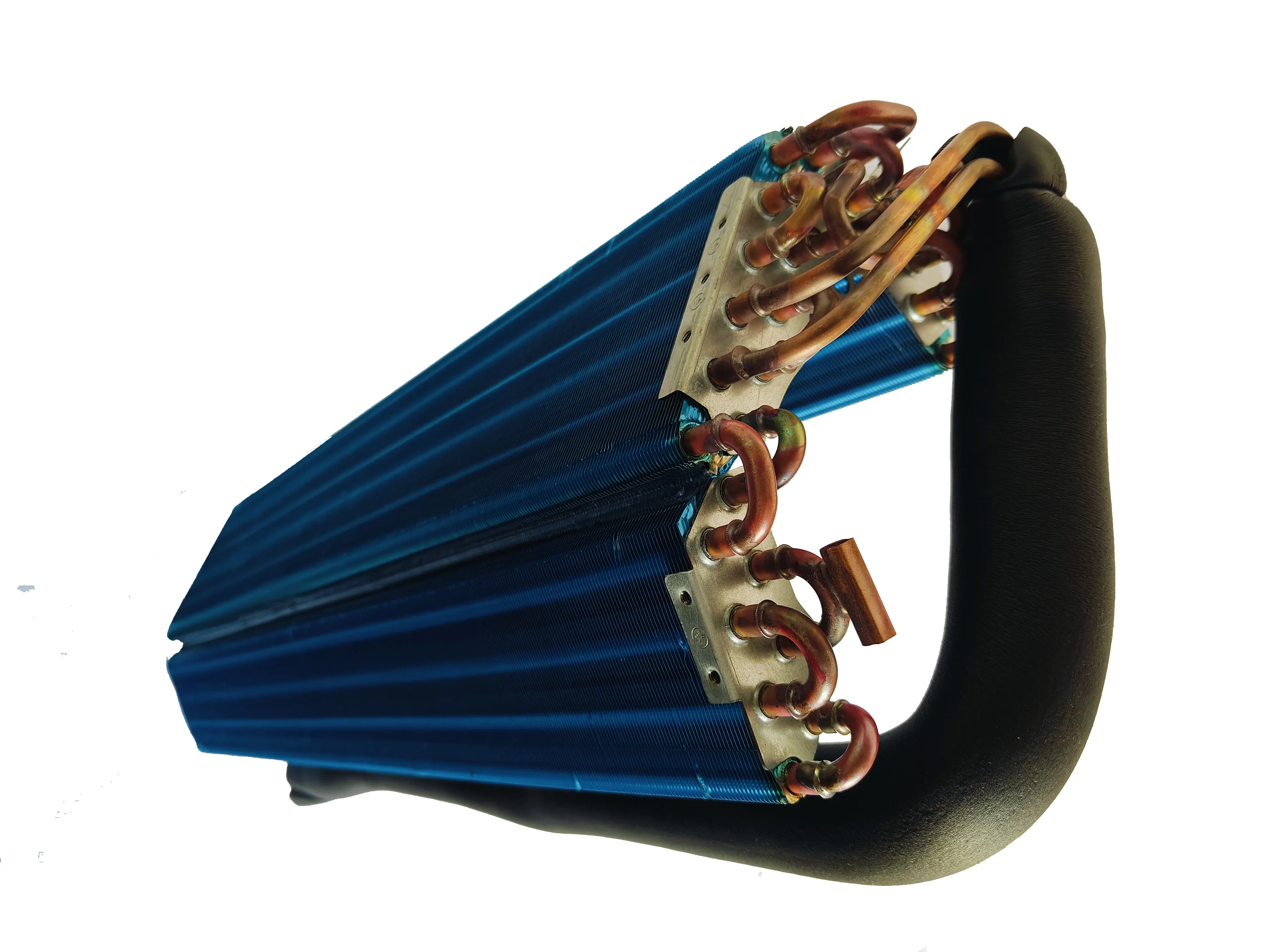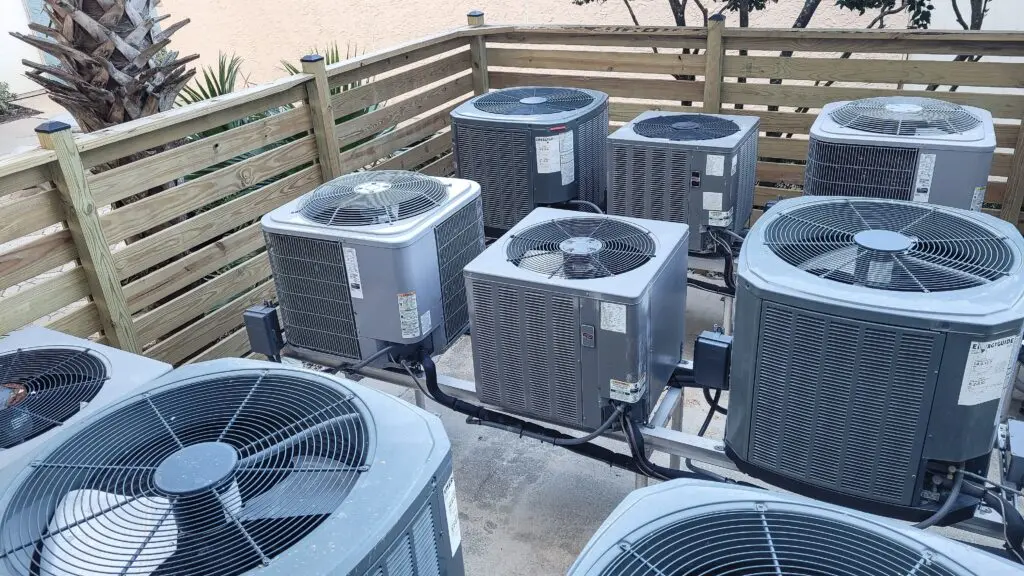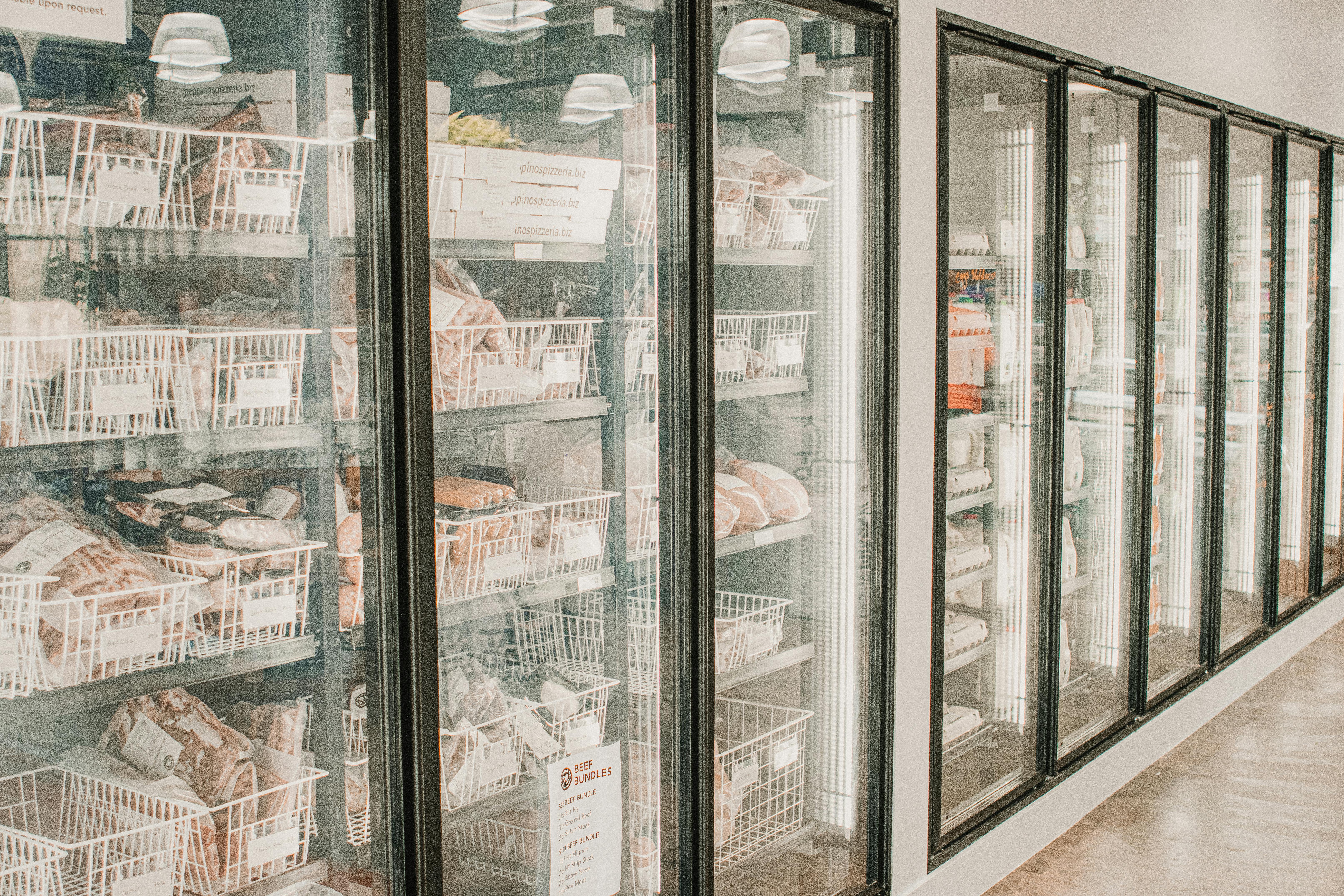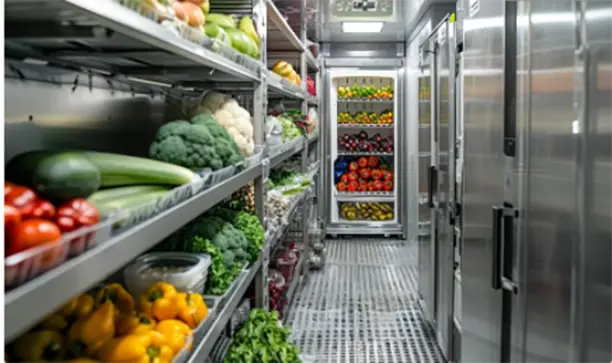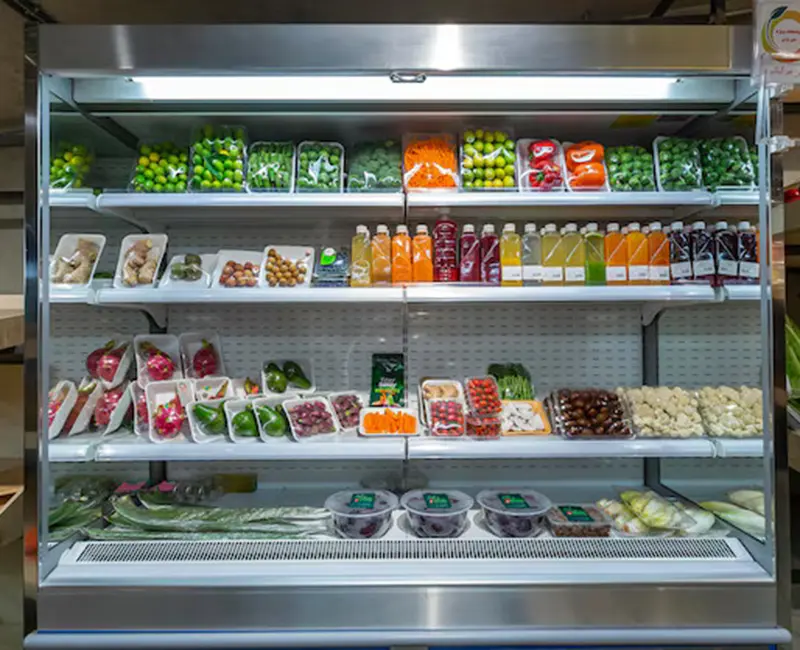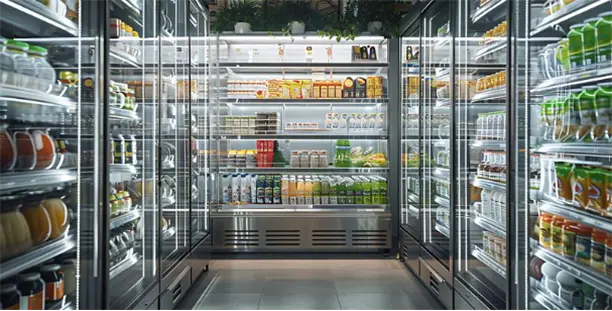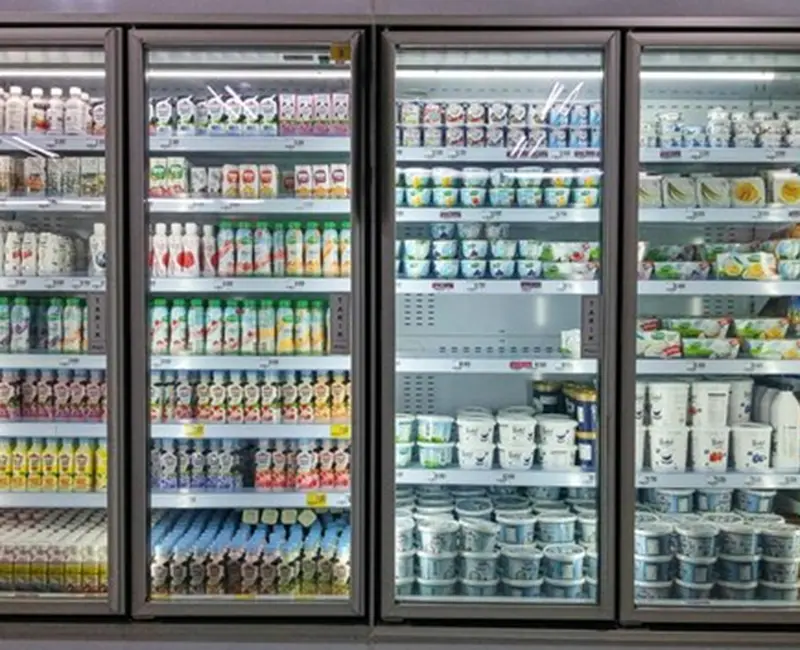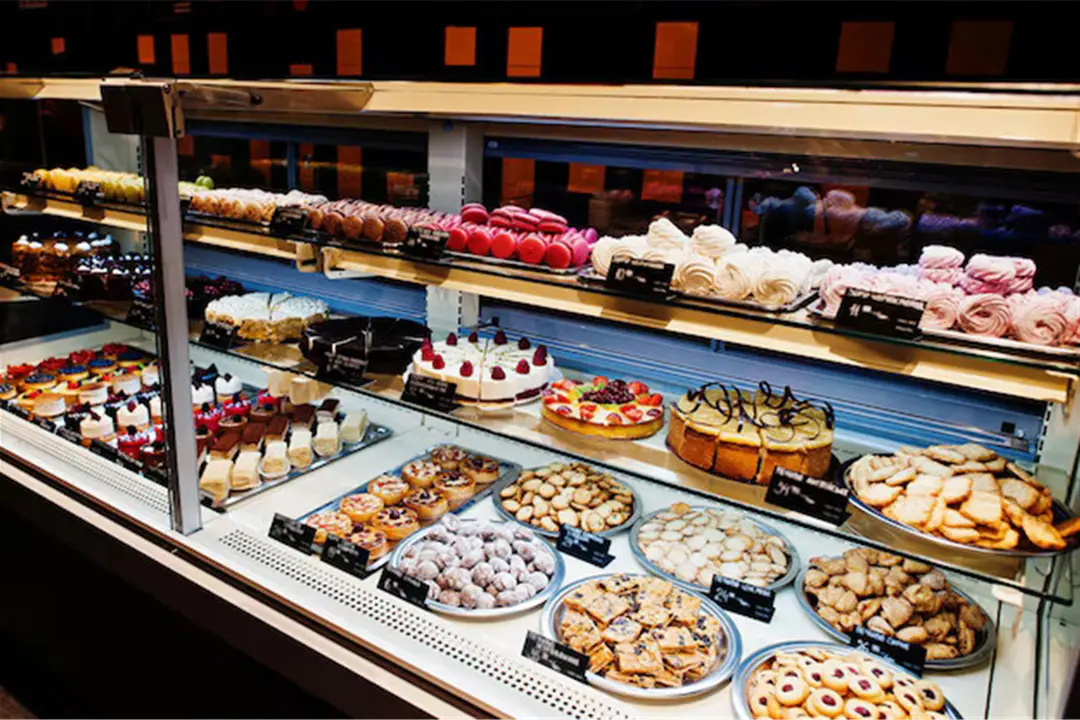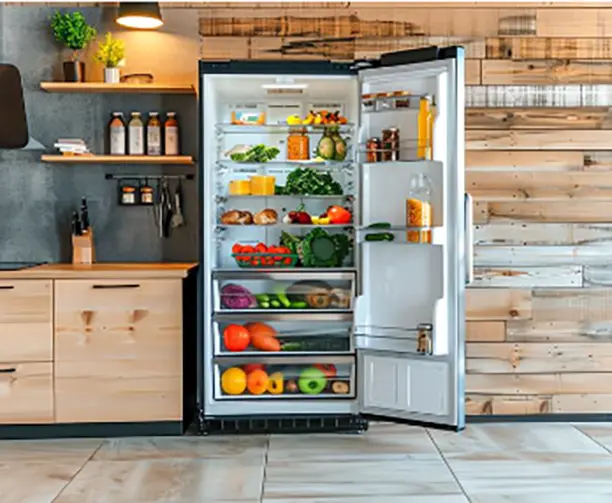A Buyer’s Guide to Condensers for Wine Cabinets & Display Coolers
A condenser plays a vital role in wine cabinets and display coolers by regulating temperature and humidity. It ensures that wine remains in optimal conditions, preserving its flavor and quality. Selecting the right condenser, such as a wire tube condenser, enhances cooling efficiency and prevents issues like water accumulation or inconsistent humidity levels. Proper maintenance, including cleaning coils and monitoring performance, further extends the unit's lifespan and ensures reliable operation.
Key Takeaways
- Pick the right condenser for your use. Air-cooled ones are simple to care for, while water-cooled ones work better for big spaces.
- Keep up with maintenance. Clean the condenser every 3-6 months to stop dust and keep it working well.
- Buy energy-saving models. Higher SEER ratings mean lower bills and more savings over time.
Understanding the Role of Condensers
How condensers regulate temperature and humidity
Condensers are the backbone of any cooling system, ensuring precise temperature and humidity control. Let me break down the process step by step:
- The refrigerant starts in the compressor, where it is compressed into a hot gas.
- It then moves to the condenser, where it cools and transforms into a liquid, releasing heat in the process.
- The refrigerant passes through the expansion valve, losing pressure and heat.
- Finally, it enters the evaporator coil, where heat exchange occurs, creating the cooling effect.
This cycle ensures that wine cabinets and display coolers maintain the ideal environment for their contents. For wine storage, the system keeps the temperature around 55°F and humidity between 50% and 70%. These conditions are crucial for preserving wine quality and preventing corks from drying out.
Some systems, like evaporative condensers, take efficiency a step further. By spraying water over the coil, they enhance heat rejection and reduce energy consumption by up to 15% compared to air-cooled systems. This makes them an excellent choice for energy-conscious buyers.
Why proper cooling is critical for wine storage and display coolers
Proper cooling is non-negotiable when it comes to wine preservation. Wine requires a stable temperature range of 55°F to 65°F to maintain its flavor and aroma. Fluctuations can lead to oxidation, which negatively impacts the wine's quality.
Humidity control is equally important. If the humidity drops too low, corks can dry out, compromising the seal and allowing air to enter the bottle. This can result in oxidation and spoilage. On the other hand, excessive humidity can encourage mold growth, damaging labels and packaging.
A high-quality cooling system ensures consistent temperature and humidity levels, creating the perfect environment for wine storage. It also prevents heat buildup in display coolers, keeping beverages and perishables fresh for longer periods.
Investing in a reliable condenser, such as those offered by senjun, guarantees optimal performance and peace of mind. Their wire tube condensers are designed to meet the demands of wine cabinets and display coolers, ensuring efficiency and durability.
Types of Condensers
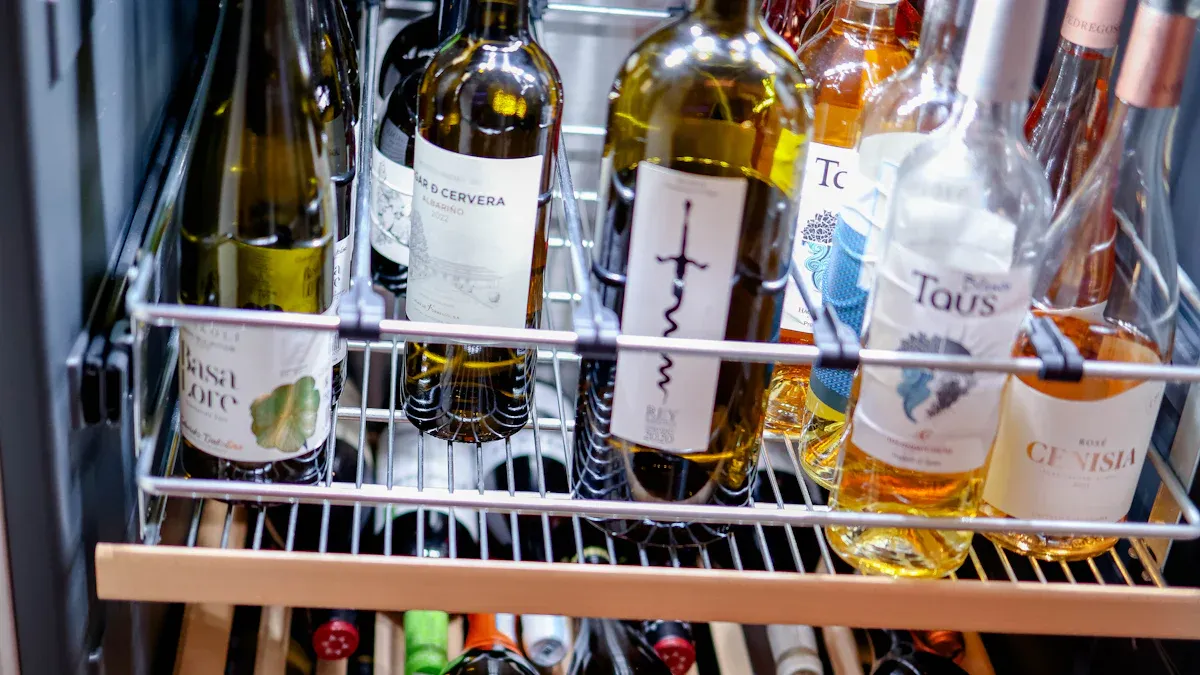
Air-Cooled Condensers
Air-cooled condensers are among the most common types used in refrigeration systems. They rely on ambient air to dissipate heat from the refrigerant. I often recommend these units for their simplicity and ease of maintenance. They are ideal for smaller wine cabinets or display coolers where water supply is limited.
However, their performance can vary depending on environmental conditions. For instance, high ambient temperatures may reduce their efficiency. Studies show that fouling on heat exchange surfaces can increase power consumption by up to 20%. Regular cleaning and maintenance are essential to ensure optimal performance.
| Parameter | Description |
|---|---|
| Cooling Capacity | The amount of heat removed from the refrigeration space. |
| Energy Efficiency | Ratio of useful cooling provided to the total energy consumed. |
| Impact of Fouling | Fouling can increase power consumption by up to 20% compared to clean surfaces. |
Water-Cooled Condensers
Water-cooled condensers use water as the cooling medium, making them more efficient for larger applications. I find these units particularly effective in commercial settings where consistent cooling is critical. They can handle higher heat loads and maintain stable performance even in hot climates.
However, they require a reliable water supply and regular maintenance to prevent scaling or corrosion. These factors make them less suitable for residential or small-scale use. Despite these challenges, their efficiency often outweighs the drawbacks in large-scale operations.
Wire Tube Condensers
Wire tube condensers are a specialized type designed for compact cooling systems. I often recommend them for wine cabinets and display coolers due to their durability and efficiency. These condensers feature a simple design with wire tubes that facilitate effective heat dissipation.
One of the key advantages of wire tube condensers is their low maintenance requirements. They are less prone to fouling compared to other types, making them a reliable choice for long-term use. Brands like senjun excel in manufacturing high-quality wire tube condensers tailored for wine cabinets and display coolers.
Pros and Cons of Each Type
| Condenser Type | Pros | Cons |
|---|---|---|
| Air-Cooled | Easier to install and maintain | Less efficient than water-cooled units |
| Water-Cooled | More efficient for larger applications | Requires more maintenance and water supply |
| Wire Tube | Durable and low maintenance | Limited to smaller-scale applications |
Each type has its strengths and weaknesses. Choosing the right condenser depends on your specific needs, such as the size of your cooling system and the operating environment.
Key Factors to Consider When Buying a Condenser
Size and compatibility with your cooling system
When selecting a condenser, size and compatibility with your existing cooling system are crucial. I always recommend inspecting the unit's structural integrity and ensuring it aligns with your system's requirements. Here's a quick guide to help you assess compatibility:
| Inspection Area | Importance |
|---|---|
| Adequate anchors and supports for unit | Ensures structural integrity and prevents leaks due to overstressed connections. |
| Corrosion of enclosure, tubes, piping | Prevents leaks and maintains performance by addressing pitting and corrosion issues. |
| Scale build-up on tube bundle | Maintains condensing capacity and overall efficiency of the condenser. |
These checks ensure the condenser integrates seamlessly with your cooling system, avoiding performance issues.
Energy efficiency and cost-effectiveness
Energy efficiency directly impacts operational costs. I suggest looking at SEER (Seasonal Energy Efficiency Ratio) ratings when comparing models. Higher SEER ratings indicate better efficiency and lower energy consumption. Here are some key points to consider:
- SEER Ratings: Higher ratings mean reduced energy costs over time.
- Average Costs: Air-cooled units are generally more affordable upfront, while water-cooled units offer better long-term savings.
- Cost Influencers: Installation complexity, unit size, and SEER rating significantly affect overall expenses.
Investing in an efficient condenser, such as a wire tube condenser, can lead to substantial savings in the long run.
Noise levels and placement considerations
Noise levels often go overlooked but can significantly impact the user experience. I recommend placing the condenser in a location that minimizes noise disruption. Wire tube condensers, known for their quiet operation, are ideal for residential or commercial settings where noise control is essential. Always check the manufacturer's specifications for decibel ratings before purchasing.
Durability and build quality
Durability ensures your condenser withstands wear and tear over time. I advise conducting regular inspections to maintain performance. Key areas to examine include:
- Supports for cracks or corrosion.
- Scale build-up on the tube bundle.
- Fan assemblies for vibrations or damage.
- Electrical connections for overheating or loose connectors.
Wire tube condensers, like those from senjun, are built with high-quality materials, ensuring long-lasting performance and minimal maintenance.
Recommended brands and models, including senjun
Choosing a reliable brand guarantees quality and peace of mind. Senjun stands out for its innovative solutions and customer-focused approach. Their wire tube condensers, such as the RC-RES 3.7 model, are highly rated for efficiency and durability. Key specifications include:
| Specification | Details |
|---|---|
| Model | RC-RES 3.7 |
| End Connection 1 | MPT |
| K-Factor | 3.7 |
| Lead Law Compliance | Yes |
| Temperature Rating | 205 |
| UL Listed | Yes |
Senjun's commitment to quality and advanced technology makes them a trusted choice for wine cabinets and display coolers.
Maintenance Tips for Condensers
Regular cleaning and inspection
Regular cleaning and inspection are essential to keep your condenser operating efficiently and prolong its lifespan. I recommend conducting a thorough inspection at least once a year. Focus on areas prone to issues, such as corrosion, scale build-up, and mechanical components. This preventive maintenance ensures peak performance and minimizes the risk of unexpected breakdowns.
Cleaning the heat transfer surfaces is equally important. Dust and debris can accumulate on the coils, reducing their aerodynamic efficiency. Studies show that cleaning these surfaces not only restores performance but can also improve heat transfer in some cases. Adjusting the cleaning schedule based on environmental conditions can further optimize maintenance efforts.
Tip: Always follow the manufacturer's guidelines for cleaning and inspection to avoid damaging the unit.
Common issues and troubleshooting
Condenser issues can arise from various factors, but many are easy to identify and resolve. Here are some common problems and their solutions:
- Refrigerant leaks: These can reduce cooling efficiency. Contact a professional to repair leaks and recharge the refrigerant.
- Dirty coils: Clean the coils regularly to prevent inefficiencies.
- Electrical failures: Inspect connections and replace damaged components.
- Humidity imbalances: Use silica gel packs for high humidity or a shallow dish of water for low humidity.
For basic troubleshooting:
- Check the power supply and ensure the unit is plugged in.
- Verify thermostat settings.
- Inspect the door seal to prevent warm air from entering.
If these steps don’t resolve the issue, professional assistance may be necessary.
When to call a professional for repairs
Some problems require expert attention. For instance, refrigerant leaks or significant electrical failures demand specialized tools and expertise. In one case, a customer with an aging HVAC system faced recurring issues. The technician recommended a replacement due to the high cost of repairs, which the customer accepted.
Note: If your condenser shows signs of severe wear or frequent malfunctions, consult a professional to assess whether repair or replacement is the best option.
Calling an expert ensures safety and prevents further damage to your cooling system.
Selecting the right condenser is essential for maintaining optimal performance in wine cabinets and display coolers. Factors like type, energy efficiency, and maintenance play a critical role in ensuring long-term reliability.
- Energy-efficient condensers reduce energy consumption, saving costs over time.
- Professional advice ensures compatibility and maximizes satisfaction.
- Understanding unit longevity helps make informed decisions.
I recommend senjun for their high-quality wire tube condensers, designed for durability and efficiency. Consulting experts or exploring trusted brands like senjun guarantees the best cooling solution for your needs.
FAQ
What is the lifespan of a condenser in wine cabinets or display coolers?
The lifespan of a condenser depends on maintenance and usage. With proper care, most condensers, including wire tube models from senjun, last 10-15 years.
How often should I clean my condenser?
I recommend cleaning your condenser every 3-6 months. Regular cleaning prevents dust buildup, ensuring optimal performance and extending the unit's lifespan.
Can I install a condenser myself?
I advise against self-installation. Professional installation ensures compatibility, safety, and optimal performance. Always consult an expert, especially for high-quality models like those from senjun.









